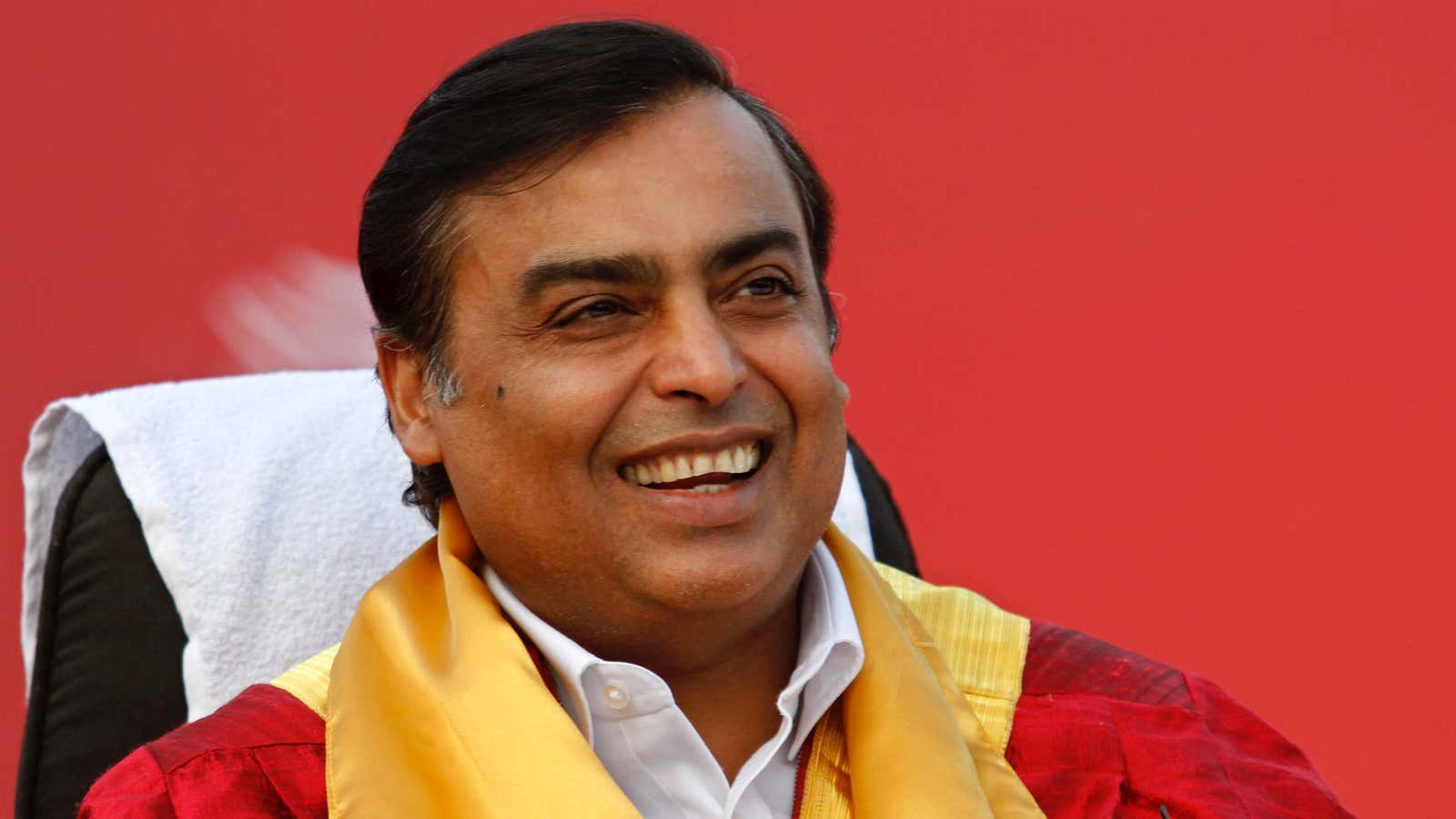Demonetisation has stripped some of India’s wealthiest of their billionaire status.
The country is now home to 100 billionaires, 11 fewer than a year ago, according to the sixth annual Hurun Global Rich List. The report credits the downsizing of India’s billionaires club to the surprise demonetisation of Rs500 and Rs1,000 notes in November, which took 86% of the cash-dependent country’s currency out of circulation practically overnight.
“India had a tough year because of disruptive government policies such as demonetisation drive,” says Anas Rahman Junaid, the managing director and chief researcher at Hurun Report India. “However, on a long term perspective, we do believe that such transparent currency economics will have a positive impact for the entrepreneurs.”
Despite sliding down eight spots to rank 29th worldwide, Mukesh Ambani retained the title of the richest man in India for the sixth consecutive year. The Reliance Industries chairman has an estimated net worth of Rs1.75 trillion ($26 billion), according to the Hurun list. Ambani made headlines in 2016 for introducing stiff competition for the older, more established players in India’s $50-billion telecom industry, such as Idea and Airtel, by launching Jio, which has acquired more than 100 million customers in less than half a year’s time.
While the discontinuation of high-denomination bills hurt some magnates, it created a windfall for at least one entrepreneur. The subsequent rise of digital payments and resulting success of Paytm made chief executive Vijay Shekhar Sharma a new entrant to the billionaires club. But it wasn’t enough of a boost to crack the top 10.
The average age of a billionaire in India is 64, the report says, and an overwhelming majority are men. Between the 100 billionaires in India and the 32 billionaires of Indian origin settled abroad, nine were women. And only one of these women, Kiran Mazumdar-Shaw, the managing director of Bengaluru-based biotechnology firm Biocon, is a self-made billionaire. Her net worth is estimated at $1.9 billion.
The highest concentration of India’s billionaires—21—belongs to the pharmaceutical industry.
In India, Mumbai is the preferred choice of residence for the richest. It is home to 42 of the billionaires on the list and was the only Indian city to rank among the top 10 cities that the world’s billionaires chose to live in. A recent report by London-based property consultancy Knight Frank also cited Mumbai as the No. 1 city for those with a net worth of more than $30 million. In the Hurun report, Delhi is a distant second with 21 billionaires and Ahmedabad is next with nine of them.
Globally, India slipped to the fourth spot among countries with the world’s largest concentration of billionaires, as Germany added 27 billionaires to overtake India in the overall ranking. Greater China led the list with a total of 602 billionaires, up by 38 from a year ago. (Hurun combines the figures for mainland China with those for Hong Kong and Taiwan.)
